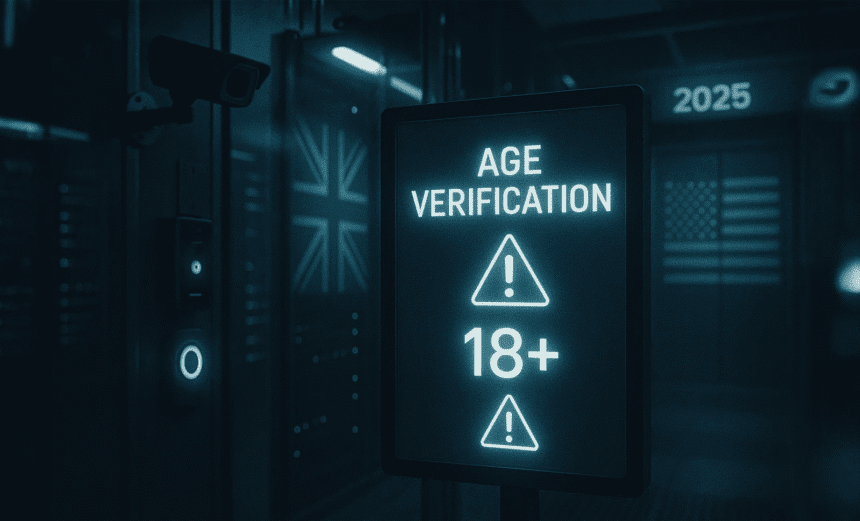In late July 2025 the UK began enforcing its Online Safety Act, a law requiring online platforms to implement strong age verification to shield minors from harmful content such as pornography, violent material, and encouragement of self-harm. The legislation has been met with sharp criticism from U.S. politicians who argue it amounts to censorship and overregulation. Representative Jim Jordan described it as “the UK’s online censorship law” and accused Ofcom of targeting American companies. The White House has also urged Britain not to threaten U.S. tech platforms.
What the Act Is and Why the UK Government Defends It
The Online Safety Act gives Ofcom the power to enforce strict rules on digital platforms to prevent children from encountering content deemed harmful. These rules extend to major social media sites, messaging services, gaming networks, and adult content providers. The law mandates that companies deploy technology such as ID checks, facial recognition, or verified payment methods to confirm a user’s age before allowing access to sensitive material.
The UK government defends the Act as a necessary safeguard for young people in an increasingly unregulated online world. Officials argue that exposure to explicit or harmful material can have long-term psychological impacts on children, citing research linking early exposure to online pornography and graphic violence with increased risk of desensitization, harmful behaviors, and mental health challenges. They also point to cases where unmoderated platforms have enabled grooming, cyberbullying, and the promotion of self-harm. By compelling platforms to act proactively, the government claims the Act closes a regulatory gap that tech companies have been slow to address voluntarily.
Supporters also argue that clear penalties, including fines of up to 10 percent of global turnover, create a strong incentive for companies to prioritize safety features. They contend that while some measures may be intrusive, they are proportionate to the risks faced by children in unmonitored online spaces.
Age Verification as a Privacy Flashpoint
The Act requires users to confirm their age through methods such as facial scans, official ID checks, or third-party verification systems. Critics warn that such measures could lead to the mass collection of sensitive personal data and increase the risk of identity theft. Privacy advocates highlight that these systems can inadvertently bar individuals who lack formal identification from accessing lawful content, while also centralizing large datasets vulnerable to breaches. The rollout has already driven many UK users toward virtual private networks to bypass restrictions.
Digital Rights Groups Sound the Alarm
Civil liberties organizations such as ARTICLE 19, the Open Rights Group, and Wikimedia have condemned the Act as overly broad and potentially damaging to free expression. The Electronic Frontier Foundation argues that mandatory age verification will not necessarily make children safer and could push them toward less moderated areas of the internet. Commentators also warn that storing large volumes of verification data could enable surveillance capabilities well beyond the original safety aims.
Political Flashpoints: From London to the White House
The dispute has escalated into a political flashpoint. U.S. legislators led by Jim Jordan formed a bipartisan delegation to press UK officials for answers about the law’s impact on American firms. During the visit, Nigel Farage clashed with Congressman Jamie Raskin, calling him “pig-headed” in a heated exchange. Vice President JD Vance, who previously warned Britain against what he termed a “very dark path” away from free speech, struck a more measured tone in meetings with Foreign Secretary David Lammy, framing the debate as a shared democratic challenge rather than an outright confrontation.
Business Backlash and Over-Compliance Risks
Large platforms such as X (formerly Twitter) have warned that the Act could lead to “over-compliance” where lawful speech is removed to avoid heavy penalties. With fines reaching up to 10 percent of global turnover, the stakes for major companies like Meta are substantial. Smaller sites, unable to bear the compliance costs, have already closed rather than attempt to meet the requirements.
Broader Implications for Global Internet Governance
The Act demonstrates how domestic regulations can ripple across borders. For the United States, it raises the issue of whether foreign governments should have the power to dictate compliance standards to American companies operating abroad. The Trump administration has begun a coordinated strategy to counter similar laws, with Secretary of State Marco Rubio directing diplomats to lobby against the EU’s Digital Services Act, framing it as equally burdensome to U.S. tech interests. These developments point to a future in which technology policy becomes an active front in international diplomacy.
A Final Note
The UK’s Online Safety Act, designed to protect children from harmful content, has evolved into a major transatlantic dispute over privacy, speech, and the limits of state power. The reactions from U.S. politicians and companies underscore the risk that well-intentioned regulation can cross into overreach. The next phase of this debate will likely influence how democracies worldwide navigate the tension between online safety and fundamental freedoms.


















